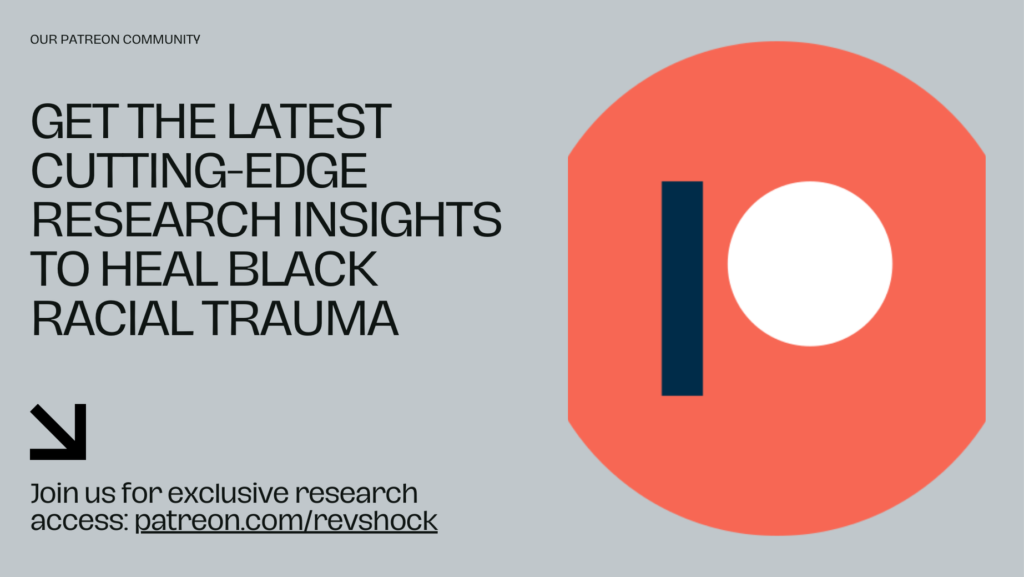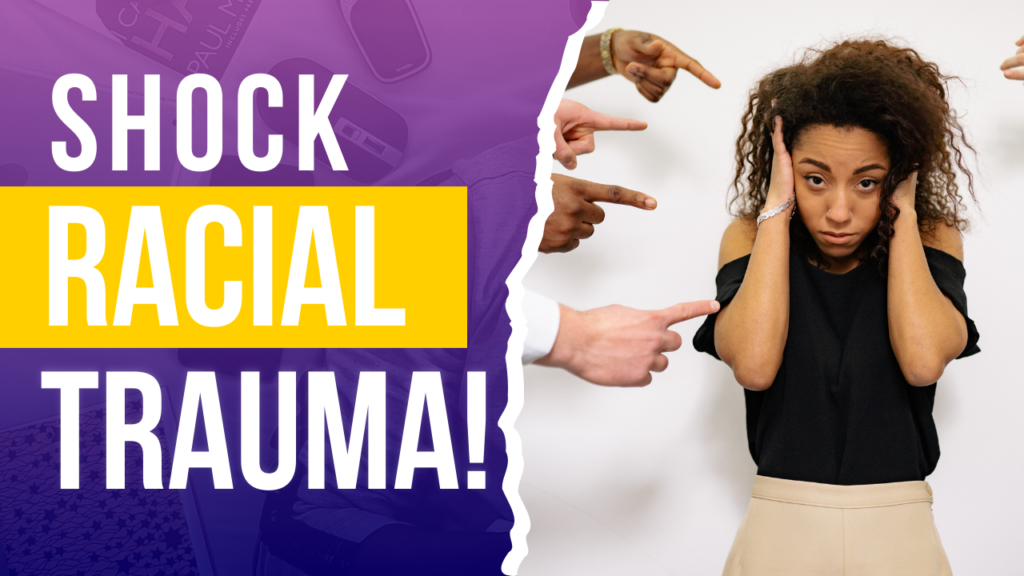
Powered By BlackTraumaGPT.com
Researched and Curated By Rev. Dr. Philippe SHOCK Matthews
(Black Trauma and Mental Health Specialist | Prompt Eng | GPT Dev | Research Scientist | Africana Phenomenologist | Black AI Corsortim co-Founder | Black Mental Health Podcast Host)

Negative self-talk and body shaming play a significant role in contributing to obesity and unhealthy relationships with food, body image, and self-worth, particularly in Black communities and among other marginalized groups. These psychological stressors not only exacerbate existing mental health struggles but also drive harmful behaviors that can lead to weight gain and disordered eating. Here’s how these factors come into play:
1. The Impact of Negative Self-Talk on Mental Health and Behavior
Negative self-talk refers to the internal dialogue that is critical, self-defeating, and unkind. This form of internalized negativity often develops from societal pressures, trauma, and experiences of marginalization, and it can reinforce a destructive cycle of low self-esteem, stress, and unhealthy habits.
- Low Self-Esteem and Emotional Eating: Negative self-talk, such as telling oneself “I’m not good enough” or “I’ll never look the way I should,” fosters feelings of shame, worthlessness, and depression. These emotions can drive individuals to seek comfort in food as a coping mechanism. This leads to emotional eating, where food becomes a temporary way to numb emotional pain or manage stress, often resulting in overeating and weight gain.
- Reinforcing Unhealthy Habits: When people repeatedly tell themselves they are unattractive or unworthy, they may become disconnected from their bodies and stop prioritizing their health. Negative self-talk can discourage individuals from engaging in self-care, like exercising or eating healthfully, because they might feel it won’t make a difference. This psychological barrier contributes to unhealthy patterns that fuel weight gain.
- Perpetuation of Shame and Guilt: After overeating or engaging in behaviors they feel are harmful, individuals often berate themselves with even more negative self-talk. This creates a vicious cycle of guilt and shame, reinforcing a harmful relationship with both food and body image.
2. Body Shaming and Its Effects on Obesity and Self-Worth
Body shaming is when someone is criticized or mocked for their body size, shape, or appearance. This can come from external sources—family, peers, media, or society—but also from within, leading to self-inflicted body shaming. This is particularly damaging for Black people, as they experience layered forms of shaming based on both race and body type.
- Internalized Oppression and Racism: Black individuals, particularly Black women, often face intersectional body shaming due to both racialized beauty standards and sexist expectations. Historically, Black women’s bodies have been hypersexualized, policed, and scrutinized. This creates an environment where many internalize negative perceptions of their bodies, leading to a toxic relationship with food and health. Dr. Joy DeGruy‘s touches on how generational trauma can reinforce these patterns of self-loathing and self-destructive behaviors.
- Psychological Impact of External Shaming: Being shamed by others—whether through family, media, or society—can deeply wound a person’s self-esteem, leading to feelings of inadequacy and rejection. These feelings can increase emotional distress, leading people to seek comfort through food, further perpetuating weight gain and contributing to obesity.
- Social Media and Cultural Pressure: The glorification of thinness and the “ideal” body type on social media and in mainstream culture disproportionately harms those who don’t fit into narrow beauty standards. Black bodies are often judged against Eurocentric beauty norms, which can result in feelings of alienation, frustration, and body shame. This constant comparison can trigger cycles of binge eating or overeating as coping strategies, exacerbating obesity.
3. How Body Shaming and Negative Self-Talk Contribute to Morbid Obesity
Both negative self-talk and body shaming create environments of chronic stress that directly impact weight gain. Chronic stress increases the production of cortisol, a hormone associated with stress that, when elevated over time, can lead to increased appetite, cravings for high-fat or sugary foods, and the accumulation of abdominal fat. These physiological responses to stress, combined with emotional eating, contribute to obesity.
For Black communities, the compounded effects of racism, weight-based discrimination, and racialized body shaming add to this stress, making it more likely that individuals will experience both psychological and physical harm. Dr. Beverly Daniel Tatum‘s research on racial identity and self-perception highlights how racism and cultural marginalization can affect one’s self-image, contributing to negative self-talk and harmful behaviors related to food.
4. Healing from Negative Self-Talk and Body Shaming
Addressing the role of negative self-talk and body shaming in obesity involves both individual healing and community-level intervention:
- Cultural Affirmation: It is critical to challenge harmful beauty standards and affirm body diversity, especially within Black communities. Movements like body positivity and body neutrality encourage individuals to embrace their bodies as they are, reducing the impact of external body shaming. Culturally relevant affirmations that celebrate Black beauty and diversity are essential to this process.
- Therapeutic Support: Therapy, especially trauma-informed therapy and cognitive-behavioral therapy (CBT), can help individuals identify and reframe negative self-talk. Therapists like Dr. Thema Bryant emphasize healing from the inside out, using mental health practices that center self-compassion and mindfulness, which can reduce the harm of negative self-perception.
- Community and Social Support: Support groups and community spaces that celebrate Black bodies in all forms can provide healing from body shaming. This collective approach helps dismantle internalized oppression and build resilience against societal pressures. It also fosters environments of self-love and mutual support.
Negative self-talk and body shaming deeply affect the mental health and body image of individuals, particularly in marginalized communities. These psychological factors fuel cycles of emotional eating and weight gain, leading to morbid obesity in many cases. Healing from these patterns involves addressing both individual and systemic sources of shame and engaging in self-affirming, culturally grounded practices that prioritize mental and physical well-being.
If nothing is wrong with you and something happened to you…are you ready to find out what to do about it? Shock Trauma Spiritual Counseling Discovery Call https://t.ly/VJWqJ | BlackTraumaGPT.com: Beginner’s User Guide https://t.ly/HtHMX | Programming chatGPT for Black Self Mental Health, Trauma, and Healing https://amzn.to/47P8MXK
Enjoying Our Content?
Become a member of our Patreon to get the latest research on Racial Black Trauma https://www.patreon.com/revshock. Or buy Rev. SHOCK a Coffee! https://bit.ly/3yg5D7A


Book A Discovery Call
Are you ready to SHOCKtrauma? Click HERE now to book a discovery call with Rev. Dr. Philippe SHOCK Matthews

Get Social with Doc SHOCK:
PATREON: https://t.ly/mjksf | REV. DR. SHOCK (PERPLEXITY PAGE): https://t.ly/ppjwh | SOLO: https://solo.to/revshock | BIO: https://t.ly/Ko_y_ | BLOG: https://t.ly/j6bh0 | PODCAST: https://t.ly/cB5GD | ENDORSEMENT: https://t.ly/jFErO | THREADS: https://t.ly/SoKkT | IG: https://t.ly/XsN8f | FB: https://t.ly/R3r9Y | X: https://t.ly/iJ-wy | LINKEDIN: https://t.ly/GZ0pe | TIKTOK: https://t.ly/zfp60 | BLACK TRAUMA GPT: https://t.ly/vswbs | BLACK AI CONSORTIUM: https://t.ly/uiRZN | BOOKS BY PM: https://t.ly/vvHMd

1 thought on “p3-Negative Self Talk And Body Shaming ”
Comments are closed.